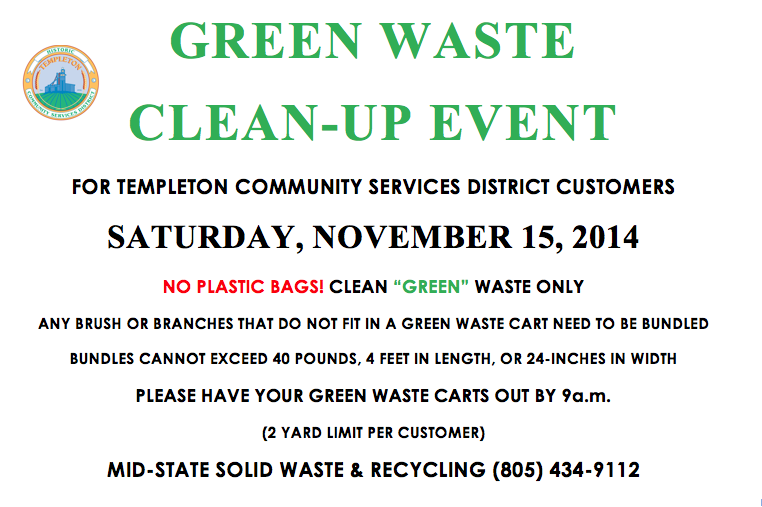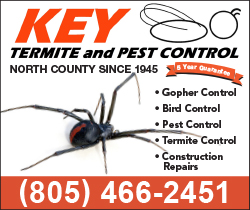Let’s Talk Trash & Recycling

Templeton CSD Conservation Intern Maria Kisyova interviewed Brad Goodrow with Mid-State Solid Waste and Recycling about what can and cannot go into trash/recycling bins, and about his insight on the ongoing Styrofoam-versus-paper-versus-plastic debate.
When asked what kind of items he sees in the recycle cans that should not be there, Goodrow sighed, “Oh, I see a lot.” He started with PVC pipe and water hoses, explaining that they tend to get caught in the conveyor belts, causing problems in the facility. According to Goodrow, items such as pipes and hoses belong in the black refuse containers. Next, Goodrow listed tennis shoes and clothes, which cannot be recycled in the curbside program. In fact, according to the Environmental Protection Agency, almost 13 million tons of textile waste is generated annually – of that, only about 15 percent is recovered for reuse and recycling.
Goodwill and the Salvation Army accept clothing donations, which are sorted according to quality. Broken and soiled items are sold to textile recyclers. Both Goodwill and the Salvation Army work with SMART – Secondary Materials and Recycled Textiles Association – a nonprofit organization with the slogan, “Donate, Recycle, Don’t Throw Away.” SMART diverts 2.5 billion pounds of post-consumer textile waste from landfills globally, 45 percent of which is sent to developing countries that buy them for use as clothes. Thirty percent is cut into wiping and polishing cloths; twenty percent is reprocessed into fibers used as furniture stuffing, insulation and sound proofing, etc; and approximately five percent is deemed unusable.
One last thing Goodrow often sees in recycling, that belongs in trash, is Styrofoam. Styrofoam does not compost or biodegrade at all, thus it cannot be recycled. When it comes to plastic and paper, Goodrow insists paper is always better. Paper is always recyclable and composts quickly, especially if it gets wet. Comparing plastic bags to paper bags, he says, “Brown paper bags are fantastic.”
Enclosing all of your household trash into plastic bags may seem easier and cleaner but it does cause trouble in terms of recycling, as surprising as it may sound. It is difficult to separate the recyclables out of every plastic bag full of trash, so many recyclable items stay stuck in the bag. Ultimately, it’s better not to throw recyclable items out in plastic bags. Here’s a helpful hint: set up a designated recycling bin in your house to keep recyclables separated.
Remember, you can reduce the amount of trash you create by not buying over-packaged products; reuse everything you can; and recycle your cans, bottles, paper, and grass clippings.









